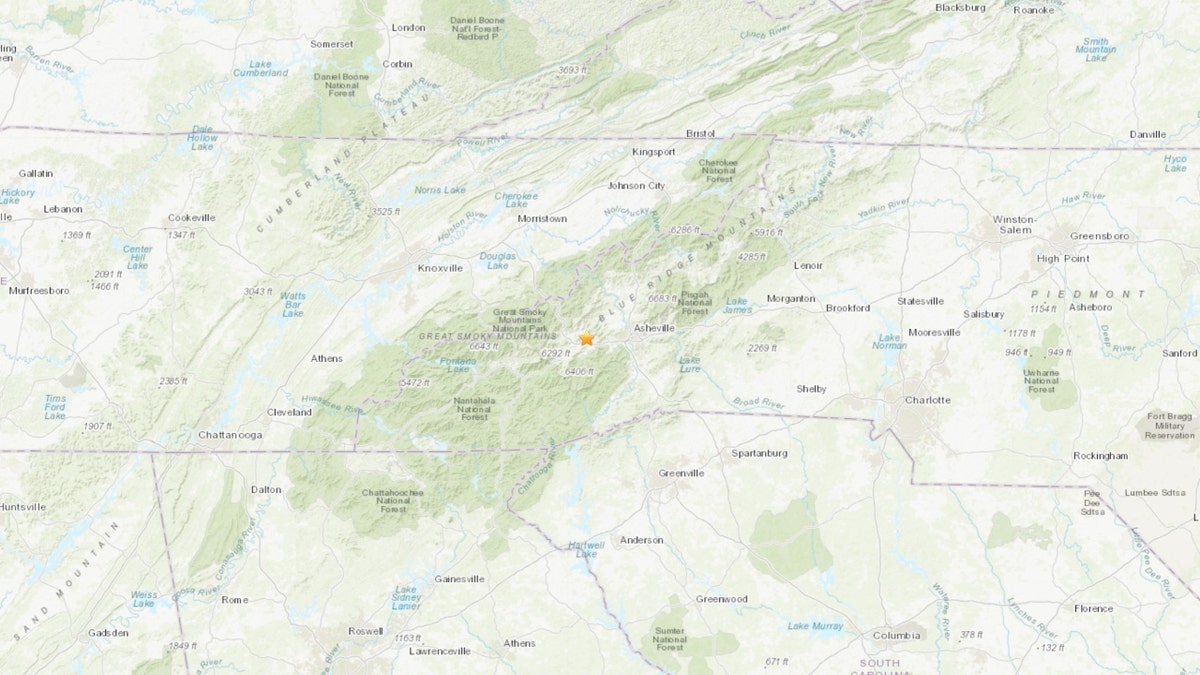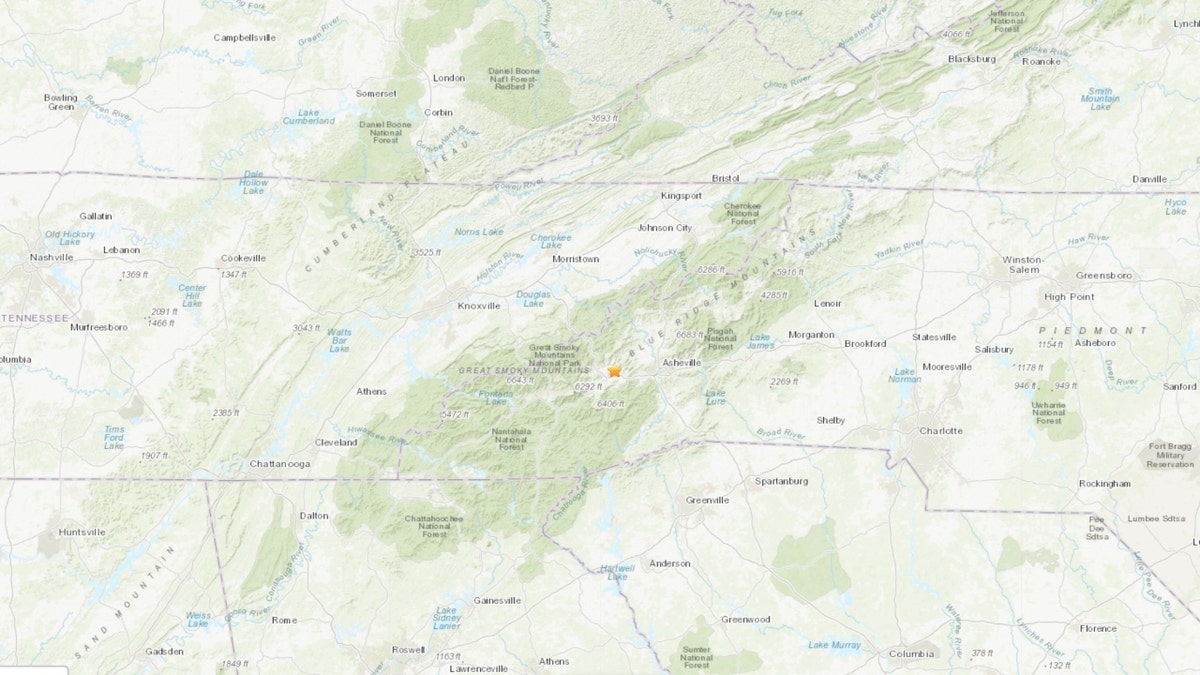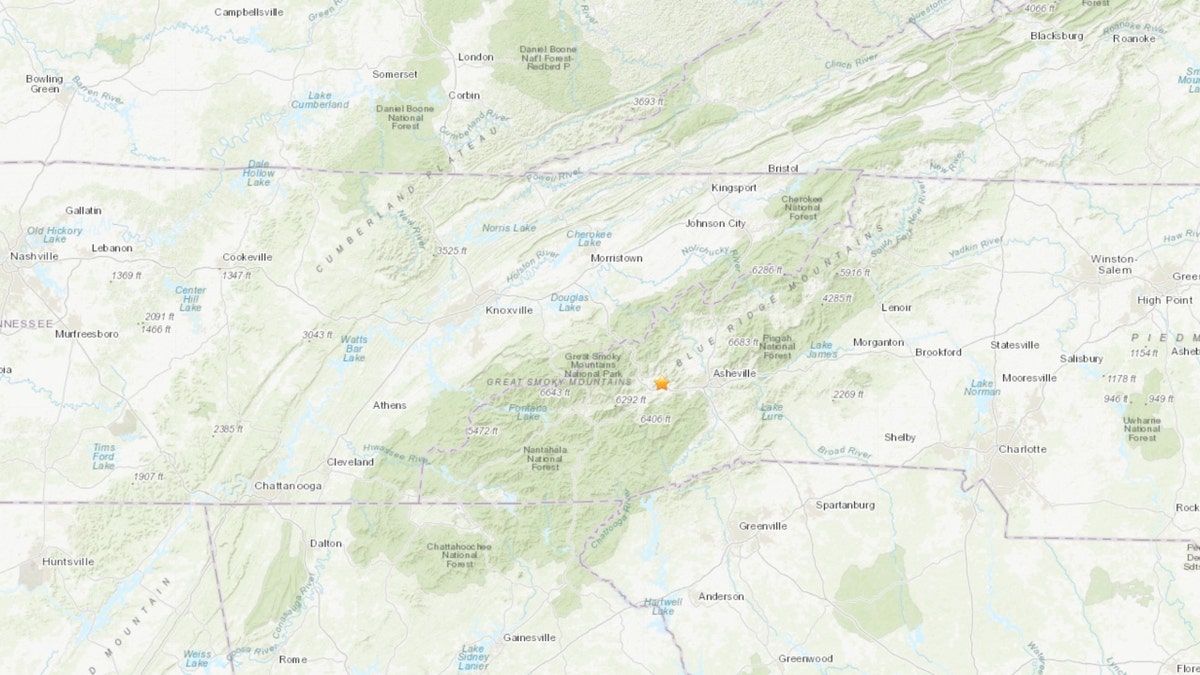Researchers make discovery to better study earthquakes: 'It provides a more fuller understanding'
University of Washington researchers discovered warm liquid coming from the seafloor off the coast of Oregon. This allows them to better study the Cascadia Subduction Zone.
Another earthquake shook a North Carolina community on Friday, which is reportedly indicative of an old fault line that is now active.
The U.S. Geological Survey told The Charlotte Observer that scientists don't know if the "cluster" will continue and are not sure why it has suddenly become active.
Friday's early morning quake was magnitude 2.1 and was centered about four kilometers to the north of West Canton.
There was only one response filed on the USGS website by a person who felt the tremor.
NORTH CAROLINA DAD TAKES A SECOND JOB AT DAUGHTER'S WORKPLACE TO SPEND MORE TIME WITH HER

The 2.1 quake hit early Friday morning, about four kilometers north of West Canton, North Carolina. (U.S. Geological Survey)
That's the same place where a magnitude 2.5 struck on the sixth and magnitudes 3.2 and 2.2 rattled the area on the fourth.
The paper said previously that the seventh earthquake there, the magnitude 2.5, was felt by about 20 people who officials said reported feeling "weak" shaking.
All the recent earthquakes recorded in the area originated near Chambers Mountain.

The Charlotte Observer reported tens of people felt the magnitude 3.2 earthquake on June 4. (U.S. Geological Survey)
The USGS reportedly said that while these earthquakes are minor in magnitude, stronger quakes are not impossible.
The agency did not immediately respond to Fox News Digital's request for comment on Saturday.
5.4 MAGNITUDE EARTHQUAKE SHAKES INDIA-CONTROLLED KASHMIR
A fault is a fracture or zone of fractures between two blocks of rock, per the agency's website.

All of the earthquakes recorded in the area originated near Chambers Mountain. (U.S. Geological Survey)
Faults allow the blocks of rock to move relative to each other, with movement that may occur rapidly in the form of an earthquake. However, the process may also happen slowly, in the form of creep.
CLICK HERE TO GET THE FOX NEWS APP
Faults may range in length from just millimeters to thousands of kilometers long.
During an earthquake, the rock on one side of the fault suddenly slips with respect to the other.
While more than a hundred – or sometimes hundreds – of quakes are reported annually in California, North Carolina saw just one from 2010 through 2015.










































